Medical
About Us


Sustainability
Environment
The Eiken Group recognizes that responding to climate change is an especially vital issue for the sustainability of society. One key task is to reduce emissions of CO2 and other greenhouse gases that are factors in climate change. The Group sets medium-to-long term targets for reducing these emissions, as part of energy-saving activities under its environmental management system, and carries out activities to achieve them. As climate disasters grow more intense and frequent, the world’s attitude to global warming is changing, as the Paris Agreement and other landmark events testify. In view of these trends, the Eiken Group is strengthening its efforts to achieve carbon neutrality by 2050. In the past, the Group has framed its reduction targets in terms of CO2 emission volume per unit of net sales. In 2024, our GHG reduction targets at 2030 were certified by the international NGO SBTi (Science Based Targets initiative).
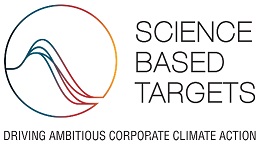
In February 2023, the Eiken Group announced its endorsement of the recommendations of the Task Force on Climate-Related Financial Disclosures (TCFD).
In 2015 the Financial Stability Board (FSB), an international body based in Switzerland, established the TCFD. In its final report, tabled in June 2017, the TCFD recommended that companies disclose climate-related information that may affect their finances. The TCFD recommends disclosure of risks and opportunities presented by climate change in terms of four elements: governance, strategy, risk management, and indices and targets.
The Eiken Group recognizes the risk climate change poses for financial markets. In addition to reinforcing its current battery of measures to tackle climate change, the Group is advancing disclosure in accordance with the TCFD recommendations.


The Eiken Group recognizes climate change as a materiality. The Group’s Sustainability Committee, chaired by the president and representative director, drafts targets and action plans and manages progress. Activities to tackle climate change as deliberated upon by the Sustainability Committee are reported to and supervised by the Board of Directors and some of their results are reflected in evaluations of the business results of executive officers. In terms of its framework for environmental management, the Group strives for continuous improvement through the Environmental Management Committee, which is chaired by an executive officer from the Business Management Division.
▶ Environmental Management
The Eiken Group recognizes that climate change is an important management issue affecting the economy and society. In accordance with the framework of the TCFD recommendations, the Group is examining the risks and opportunities associated with climate change from a wide range of perspectives, to identify those risks and opportunities that the Group deems most important.
To analyze the potential financial impact on the Group of the risks and opportunities associated with climate change, the Group has examined two scenarios: a scenario of 2°C of warming or less, in which regulatory and other responses to climate change will proceed on their current course, and a scenario of 4°C of warming, in which natural disasters and the spread of infectious diseases will become more serious.
To gather the information necessary for our inquiries, we referred to resources such as the International Energy Agency (IEA)’s World Energy Outlook 2022 (WEO 2022): Net Zero by 2050 and the same agency’s Energy Technology Perspectives 2020 (ETP 2020).
The Eiken Group’s understanding of the business environment in each scenario and the expected impact on its operations are summarized below.
Private-sector responses and government regulations will continue in a bid to restrain the rise of atmospheric temperatures. Whole societies will shift toward a low-carbon framework. The main effect on the operating environment will be the realization of transitional risk, as described below.
【Impact on society】
Governments and organizations all over the world respond actively to climate change, introducing regulatory measures such as carbon taxes and restrictions on greenhouse-gas emissions. Companies unavoidably bear the cost of complying with these measures and higher prices passed on from suppliers.
【Changes in the Group’s business environment】
As the shift to renewable energy progresses and new carbon-reduction technologies emerge, customer awareness changes, driving up demand for products and services that contribute to the formation of a low-carbon society. The promotion of measures to reduce plastic use and recycle plastics can be expected, as represented by regulations on plastics already in force in Europe. The Group will have to respond, as Eiken products use a great deal of plastics.
Serious efforts to grapple with climate change are not taken. As a result, physical risks such as the spread of infectious diseases and the ferocity of natural disasters grow more severe, having the following impacts on the business environment.
【Impact on society】
Regulations and policies on climate change have little effect and fail to deliver significant results in terms of operations. The rise in atmospheric temperatures proceeds unrestrained. Large-scale natural disasters become more frequent and more severe.
【Changes in the Group’s business environment】
In addition to direct damage from natural disasters, the rise in global temperatures is expected to aggravate the spread of infectious diseases and change disease trends. As a result, the social responsibility of the Group, as a developer and supplier of clinical diagnostics, is anticipated to expand significantly.
【Impact of Climate Change on Our Group】
| Risks and opportunities | Type | Impact factors | Main impacts on the Eiken Group | Expected time-frame* | Degree of impact** |
Measures under consideration |
||
| 2℃ | 4℃ | |||||||
| Risks | Transitional risks | Regulatory | Carbon taxes and emission trading systems | Additional costs from effects such as the introduction of carbon taxes and emission trading systems | Medium term | Inter-mediate | - | • Advancement of energy-saving activities (introduction of energy-saving devices, conversion to LED lighting, advancement of DX, etc.) • Expansion of introduction of renewable energy (use of hydroelectric and solar power, etc.) • Continuous monitoring of Scopes 1 and 2 and emission reduction efforts |
| Environmental regulations related to plastics | Reductions in sales due to inability to sell certain products, as a result of environmental regulations on certain products, such as plastics and other packaging and products | Short to medium term | Inter-mediate | - | • Continuous surveying and response to trends in environmental regulations • Product development in view of market and industry trends |
|||
| Techno-logical | Failed investments in new technologies | Loss of sales opportunities due to delays in development of technologies for low-environmental-impact products, focusing on plastic-related products | Medium to long term | Inter-mediate | - | • Evaluation of environmental impact of products • Encouragement of product development and capital investment geared to reduction of environmental impact |
||
| Market | Increases in procurement costs | Pressure on earnings caused by increased material and transportation costs as carbon taxes are passed on in the prices of these items | Short to medium term | Inter-mediate | - | • Optimization of material suppliers and import routes | ||
| Reputational | Lowered evaluation in the eyes of stakeholders | Decrease in share price and corporate value due to loss of confidence of shareholders and investors if environmental measures are inadequate | Medium term | Minor | - | • Active disclosure through advancement of sustainable management | ||
| Physical risks | Acute | Increased severity and frequency of abnormal weather | Loss of sales opportunities from supply-chain disruption caused by inundation and flood damage at factories and logistical facilities | Long term | Inter-mediate | Major | • Strengthening of disaster-preparedness measures at offices and suppliers • Preparation and continuous improvement of business continuity plans |
|
| Chronic | Increase in average atmospheric temperature | Loss of sales opportunities from reduced rate of operation at Company and supplier production facilities as well as disruption of parts supplies resulting from the spread of infectious diseases | Long term | Minor | Minor | |||
| Opportunities | Products and services | Development and provision of low-emission products and services | Increase in sales opportunities in development and provision of products with low CO2 emissions in the production phase and energy-saving services, as needs for highly sustainable products increase | Medium to long term | Inter-mediate | - | • Evaluation of environmental impact of products • Advancement of product development and capital investment focused on sustainability |
|
|
Increase in sales opportunities arising from supply of equipment with low CO2 emissions across the product life cycle |
Medium to long term | Inter-mediate | - | • Evaluation of environmental impact of products • Development of environmentally friendly products (improvement of packaging and product design) |
||||
| Development of solutions for climate adaptation and resilience | Sales increases and contributions to society from early response to changes in disease trends, such as spread of new infectious diseases in tandem with climate change | Long term | Inter-mediate | Inter-mediate | • Continuous monitoring of trends in infectious diseases and development and provision of diagnostics | |||
| Product development through R&D and technical innovation | Increase in sales opportunities from development of quality-first products unaffected by atmospheric temperature | Medium to long term | Inter-mediate | Inter-mediate | • Evaluation of environmental impact of products • Development of products with reduced environmental impact in the preservation and storage phases of the product cycle |
|||
| Increase in sales opportunities from provision of products that can run on renewable energy | Short to medium term | Inter-mediate | Inter-mediate | • Provision of movable products such as portable solar panels | ||||
| Market | Response to climate-change risk | Improvement in corporate value resulting from improved ESG-related evaluations by investors, by vigorously advancing measures to deal with climate change | Medium term | Inter-mediate | - | • Active disclosure through advancement of sustainable management | ||
* Definitions of expected time-frames: Short-term: Less than 3 years; medium-term: 3 years or more but less than 10 years; long-term: 10 years or more
** Definitions of financial impact: Minor: Less than ¥100 million; intermediate: ¥100 million or more but less than ¥2.5 billion: major: ¥2.5 billion or more
Through its environmental management system, the Eiken Group evaluates the environmental impact of its business operations every year, including from a compliance perspective. As part of its risk management, the Group conducts a comprehensive risk assessment once a year.
Building upon the TCFD Recommendations, the Eiken Group assesses the risks and opportunities engendered by climate change through the deliberations of the Sustainability Committee and its subordinate organization, the Environmental Management Committee. The Group strives to reduce the risks and capitalize on the business opportunities identified by these two Committees.
The Eiken Group aims to become carbon-neutral by 2050. The Group has set a further target of reducing CO2 emissions (Scope 1 and Scope 2) by 56% compared with FY2021 by FY2030. Scope 3 has been calculated since FY2020, and we have set a target of 25% reduction by FY2030 (compared to FY2022).
The Group have disclosed our Scope 3 results in our “ESG Data” and will work toward setting reduction targets.
|
Results for FY2021 |
Results for FY2024 |
Target for FY2027 |
Target for FY2030 |
|
|---|---|---|---|---|
|
Reduction in CO2 emissions at |
CO2 emissions 7,318t-CO2 |
CO2 emissions 2,649t-CO₂ (64% reduction |
37% reduction |
56% reduction |
|
Results for FY2022 |
Results for FY2023 |
Target for FY2024 |
Target for FY2030 |
|
|---|---|---|---|---|
|
Reduction in CO2 emissions at |
CO2 emissions 84,205t-CO2 |
CO2 emissions 77,708t-CO2 (8% reduction |
15.6% reduction |
25% reduction |
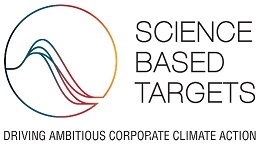
In order to contribute to the mitigation of climate change, the Eiken Group has set medium- to long-term GHG emission reduction targets based on scientific evidence that is compatible with the Paris Agreement, which calls for "limiting the increase in global temperature to well below 2°C above pre-industrial levels and 1.5°C below pre-industrial levels," and is working to reduce CO₂ emissions.
*emission reduction targets based on scientific evidence that conforms to the standards required by the Paris Agreement, which aims to reduce greenhouse gas emissions by 5°C. (https://sciencebasedtargets.org/)
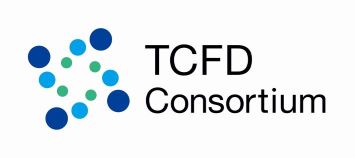
The Eiken Group participates in the TCFD Consortium.
The TCFD Consortium is an organization dedicated specifically to climate-related issues that assists companies in disclosing information based on TCFD recommendations.
Through its participation in the consortium, the Eiken Group will strengthen its company-wide efforts to disclose information based on TCFD recommendations and to create opportunities and measures to address risks.
Eiken Chemical aims to be carbon neutral (Scope 1 and 2) by 2050 and is promoting the introduction of sustainable power. As one of our efforts, we have adopted "Tochigi Furusato Denryoku", which is power generated solely from water without emitting CO₂ during power generation, at our Nogi Plant (Nogi-machi, Tochigi Prefecture) since March 2022, and Nasu Plant(Otawara-shi, Tochigi Prefecture) since March 2023. Tochigi Furusato Electricity" is a locally produced and consumed renewable energy provided by Tochigi Prefectural Government and Tokyo Electric Power Energy Partner, Inc. A portion of the electricity charges are used for environmental conservation projects in Tochigi Prefecture, thus contributing to the local community, and we are working to achieve both community partnerships and global environmental conservation.
Solar panels were installed on the roofs of the Nogi Division’s Operation Management Center (OMC) , Dried Product Plant (DPP) facilities and R&D Centre, and they currently generate approximately 8,000 kWh per month on average. In addition, a monitor displaying a visualization of power generation conditions was installed. This real-time display spreads information about power generation and increases awareness of energy conservation.
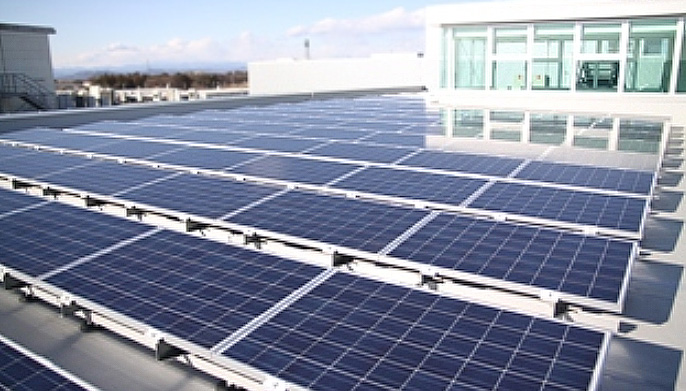
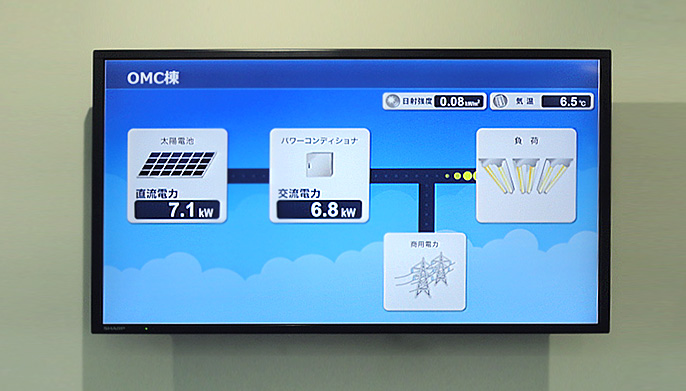
At the Nasu Division, the solar energy from solar panels installed on some buildings is used to charge low-environmental-impact electric vehicles (EVs) introduced as Company vehicles.
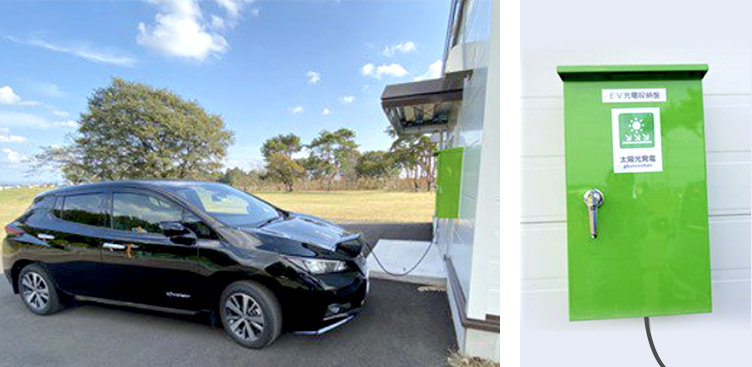
At the Company, an initiative to calculate supply chain greenhouse gas emissions as Scope1, Scope2, or Scope3 is underway. At each step from procurement of raw materials to shipping products, usage, and disposal, the steps with the largest greenhouse gas emission volumes and potential for reduction can be identified. In this way, we can reduce not only our own emissions but also those of raw material suppliers, product buyers, and other parties within the supply chain as a whole. This can also promote the sharing of information with the companies that make up the supply chain, helping to build understanding among these related parties so we can all work together to reduce greenhouse gases.
The Company is always carrying out environmentally-conscious initiatives for product development. The polyvinyl chloride used in conventional products has been reduced by planned replacement, and this material is currently no longer used in our products. One specific initiative is the transition of storage requirements from freezing to room temperature for the TB-LAMP tuberculosis detection system which is also used in developing countries. This reduces the energy requirements related to cooling during shipping and also eliminates the need for a refrigerator in testing facilities, making examinations possible without concern for electricity. This also links to reduced plastic requirements for examinations, reducing waste and achieving a more environmentally-conscious product. Through initiatives for detail-oriented design and development of medical devices to meet customer demands, we are working to improve characteristics such as miniaturization, weight reduction, power conservation, short-term processing, and recyclability. Installation of the latest energy conservation equipment and high-performance processing machinery is promoted by setting goal values for each fiscal year.
Once a year, Eiken Chemical conducts environmental impact assessments of all existing products. The criteria applied differ by type of product. For reagents and fixtures, criteria include sales volume, storage conditions, shipping load, expiration date, inclusion of toxic substances, user complaints and environmental requirements. For devices, criteria include number of units installed, service life, power consumption, use/non-use of consumables, device materials and packaging, user complaints and environmental requirements. Similar criteria are applied to new products, which are assessed before product launch.

"Decokatsu" is a national movement to change people's behavior and lifestyles toward decarbonization. The "Decokatsu" name is combining "DE" carbonization, "ECO", and "Katsu" (Japanese word for activity and lifestyle).
The Company are registered as an endorser of the "Decokatsu" initiative and are promoting various initiatives at each of our business sites as follows.
| Measures | Overview | |
|---|---|---|
|
Eco Day: All Employees Leave |
At each of the Company’s business sites, all employees finish work at the same time, and this initiative reduces energy expenditure for air conditioning and lighting. |
|
|
Cool Biz, Warm Biz |
The Company has established periods during the year for Cool Biz and Warm Biz dress codes, and the air conditioning is set at reduced levels in accordance with the Ministry of the Environment recommendations: 28 degrees Celsius in the summer and 20 degrees Celsius in the winter. |
|
|
IT Utilization for Improved Operation Efficiency and Reduction of Printing Costs and Paper Usage |
In order to improve the operation of our business systems and to respond to globalization, The Company have launched an IT project and have been working on it since 2017. As The Company have been working on the IT implementation of the core business system, we were able to achieve paperless operation in most of our operations by April 2021. |
|
|
Promoting the Adoption of Hybrid Vehicles for Company Use |
The Company has promoted the adoption of hybrid vehicles for use as company cars, and this conversion was completed in 2019. In FY2020, average gasoline consumption was reduced by 40% from the level before the conversion. |
|
| ECO DRIVE Campaign | The Company is conducting a campaign to raise awareness of eco-driving, one of the decarbonization actions recommended by the Ministry of the Environment. | |
| Green Curtain Project |
|
|
|
Expansion of Forest Stewardship Council (FSC) Certifications for Printed Materials |
FSC certified paper is used for our corporate brochure and internal bulletins, indirectly supporting forest conservation all over the world. |
|
|
Promotion of Green Purchasing |
The Company is promoting the use of Eco Mark products because we believe their use will minimize environmental burdens. |